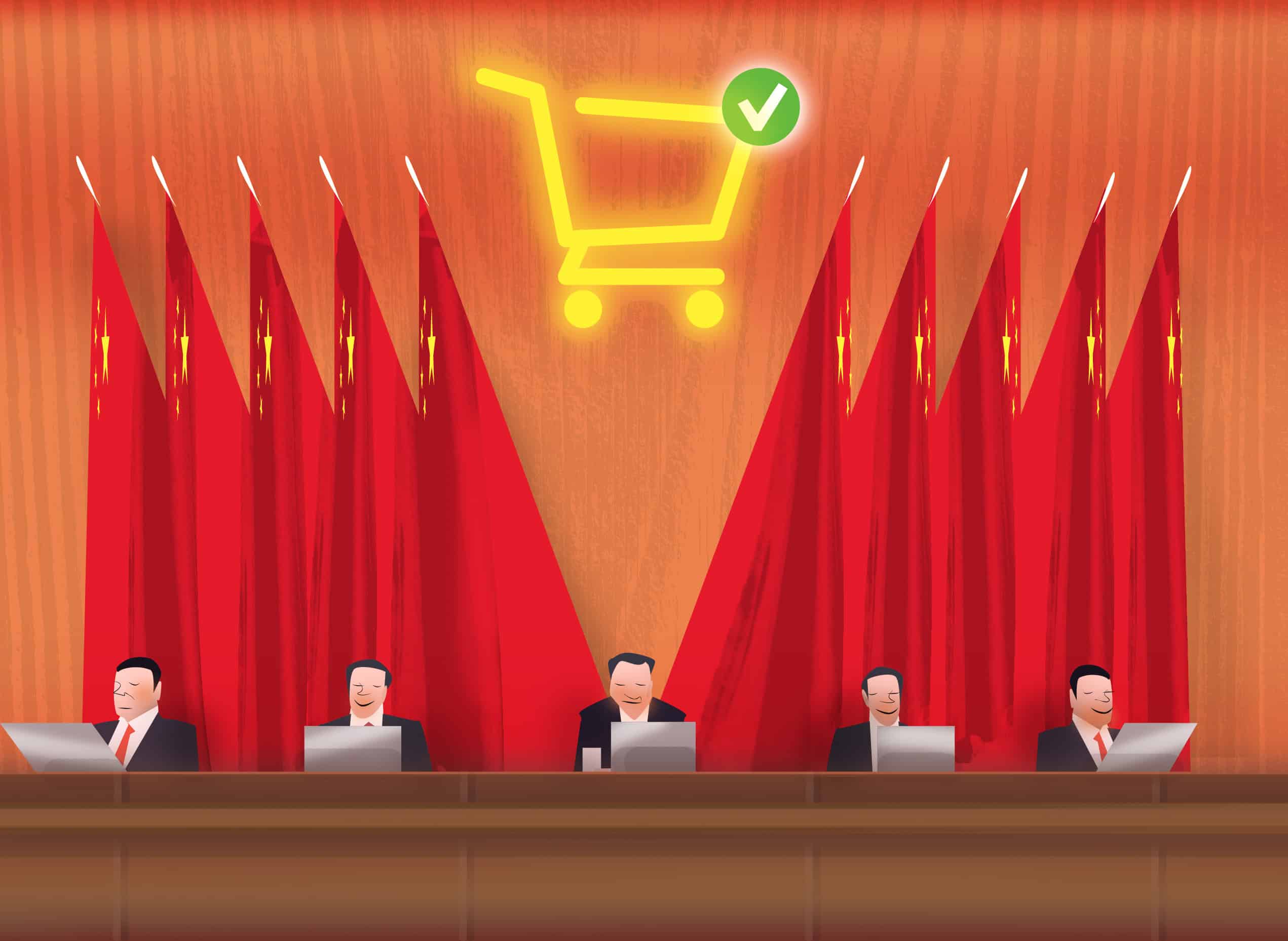David Zweig is a social scientist and emeritus professor of the Hong Kong University of Science and Technology. His new book, The War for Chinese Talent in America: the Politics of Technology and Knowledge in Sino-U.S. Relations, explains the origins of the current conflict between China and the U.S. over the knowledge imbued within China-born academics and researchers who have chosen to settle in America. In this edited transcript of a recent interview, we discuss his sharp criticisms both of the aggressive efforts in China under Xi Jinping to persuade these scientists to share U.S. technology, and of the Trump administration’s China Initiative, whose goal was to break that cycle of technology transfer.
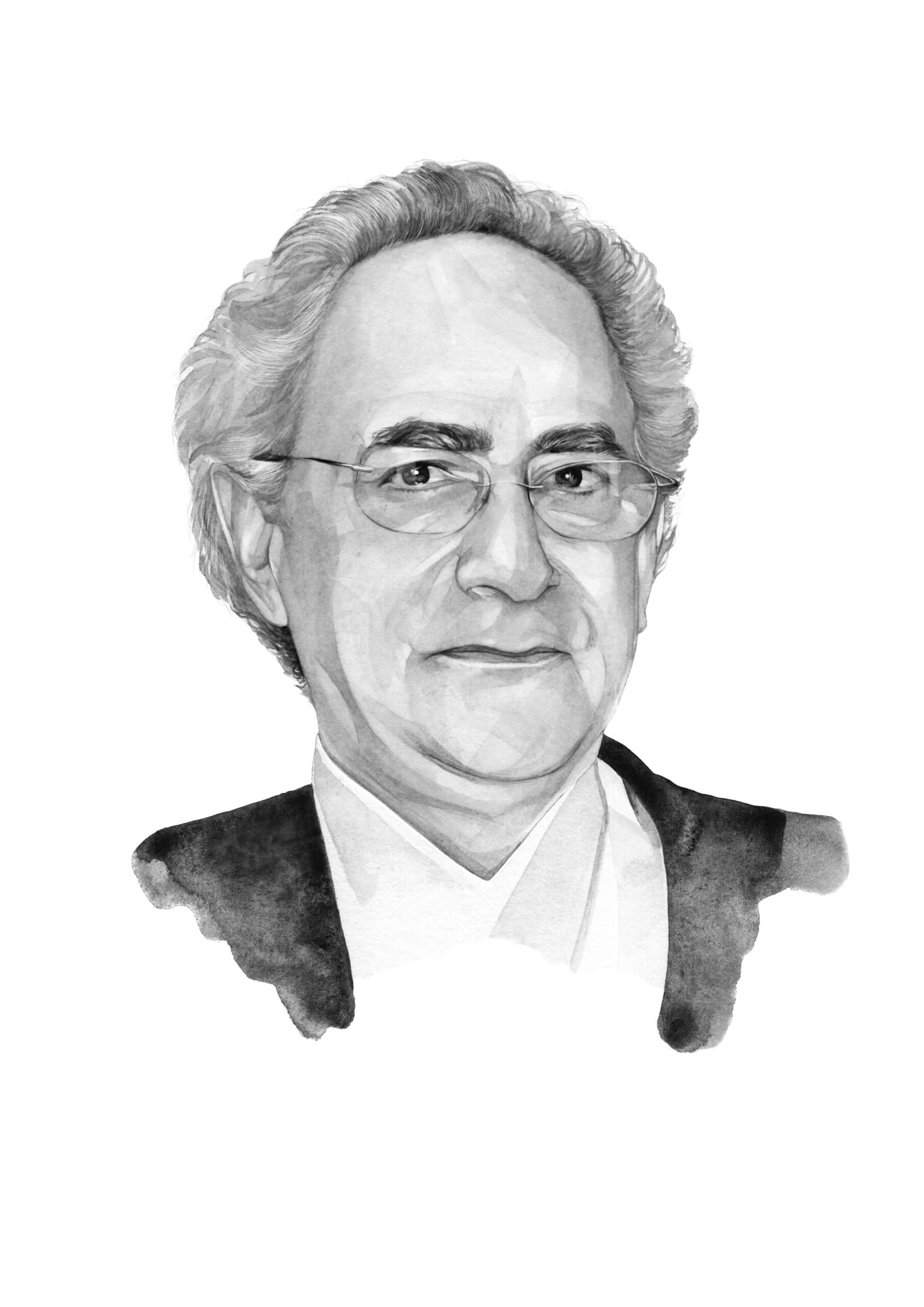
Illustration by Kate Copeland
Q: How deep was U.S. and Chinese academic cooperation at its height, before the controversy of the last few years?
A: You probably have 15,000 mainland Chinese academics in the U.S., and a significant number of them, particularly the more senior ones, have been here for most of their careers. Something like 44 percent of joint publications between Chinese academics and those elsewhere are with the United States, while 53 percent of China’s total collaborative grant applications are with the U.S.. If you look at journals like Science or Nature, you see how many of them are by an ethnic Chinese or American professor in the U.S., and a professor in China. So the links are really deep and across a lot of fields.
And what has been the main incentive for Chinese scholars to come to the U.S. over the years, since the reform and opening up period began?
The first thing is, to get a better degree. The first people who came out in the 1980s to get a Master’s degree were able to stay over for a PhD. You wanted an American PhD, because it both increased your opportunities in the U.S. and, if you decided to go back, it was a much more valuable degree when looking for a job in China. There was a huge value given to getting an overseas degree through much of this period compared to local ones. There was also the chance to work with world class professors, which they didn’t have any of in China at that time.
| BIO AT A GLANCE | |
|---|---|
| AGE | 73 |
| BIRTHPLACE | I was born in Toronto but now live in NYC. |
| CURRENT POSITIONS | Distinguished Visiting Professor of Taipei School of Economics and Political Science, National Tsinghua University, Taiwan. Professor Emeritus, Hong Kong University of Science and Technology. [Note: I retired in 2019.] Vice President, China Center for Globalization, Beijing. |
At the start of this, a lot of the cost was being funded by the U.S., is that right?
Correct. The data shows that circa 1990, China was only paying about 17 percent of the cost of sending these people abroad. So the Americans were paying the Chinese to come and study, largely because of the quality of the research they could do with these students. Right after Tiananmen [in 1989], when relations between the U.S. and China were so bad, the first group to speak out for reestablishing academic links were American professors, because they couldn’t run their labs.
As time went on, if you were an assistant professor in China, and you wanted to get promoted, you had to go abroad. Some schools said you must have at least six months of experience overseas. If you really wanted to get promoted, you spent two to three years overseas, you worked with a world class professor, you published an article or two in Nature, or a top physics journal. And then you went back, and got promoted.
China, though, created a sort of circular problem with its brain drain, which is, if you wanted to get promoted, you had to go abroad. But if you went abroad, you weren’t sure you were coming back.
Was the Chinese government worried about this brain drain, or more encouraging of this movement of academics overseas?
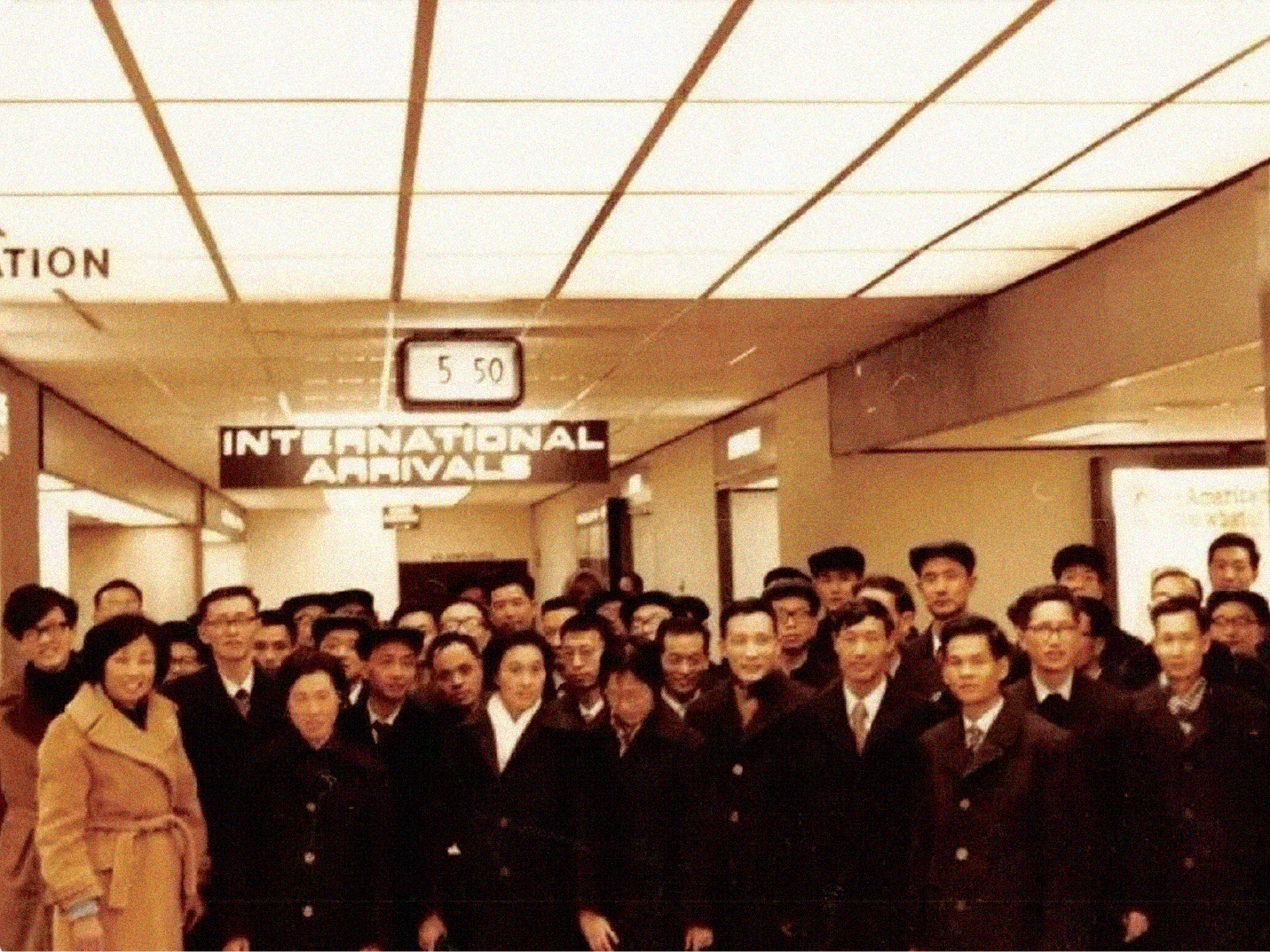
Well, that’s easy. To quote Deng Xiaoping from 1978: ‘If you want to catch up with the West, you have to learn from the West, you want to learn from the West, you have to go to the West.’ But he guessed wrong: He thought the brain drain would amount to about 10 percent of those going abroad and said, well, if 10 percent of the people don’t come back, that’s okay. But by 1997, the data was showing that among self-paying students, only 3 percent were coming back; among those who were funded by their danwei or work unit, probably only 35 percent were coming back. And then for the fully government supported people about two-thirds were returning.
So they were losing a lot of people, and that created a stir. The Chinese leadership got together in 1988 and said, what should we do about it? The Ministry of Education said we shouldn’t send anybody out anymore, while the Overseas Chinese Office said, “let’s keep sending them out, let them become citizens, they’ll present a good perspective on China abroad.” And the State Science and Technology Commission said let them go out, let them get jobs, let them get embedded in the technology, and when they come back they will bring the technology with them. The then-premier Zhao Ziyang supposedly called it a strategy of ‘storing brain power overseas.’

Some in the U.S. would point to that sort of quote and say: See, the plan all along was to allow people to go over to America, take their intellectual property and their secrets and use their technology for our own purposes — and that the U.S.’s mistake was to allow this to happen. What is the counterpoint to that?
Well, I’m not sure there is a total counterpoint. You have to say, what is it worth to you? What did America gain from all of this? All of these research assistants, all of this collaborative research, you want to know that you’ve actually gained something from the Chinese side. The data show that in fact, the Chinese have gained more from America than America gains from China, but in terms of co-publications, America would have fewer publications without China.
Most of that was not really a problem — until China became a strategic competitor.
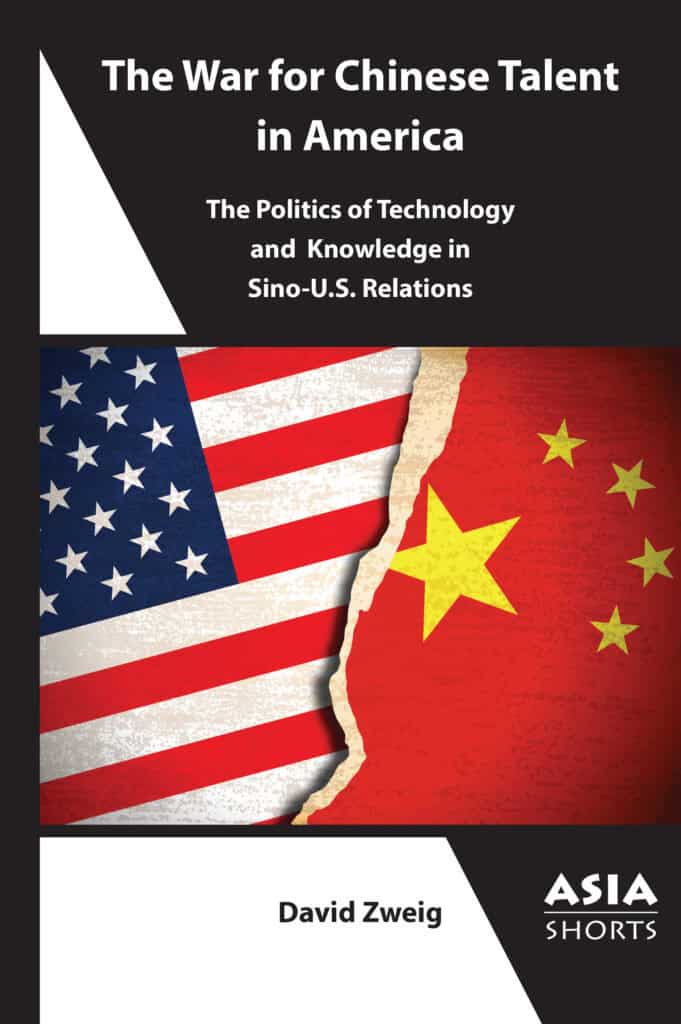
I start the book by looking at the concept of there being a moral necessity to help the developing world by allowing students to come to developed countries. It’s called the “diaspora option.” It becomes a problem when the developed countries all of a sudden say, ‘wait a second, you’re a challenger to us now. We’re not just helping you catch up, you’re now trying to go beyond us.’
That’s where Xi Jinping becomes a problem. That’s why I may not get back to China so easily after this book, because I don’t pull punches on his role in all this.
Through the 1990s and beyond Beijing put in place various programs with the idea that even if the Chinese academics didn’t come back permanently, at least they would spend some time back in the country, spreading knowledge, working in universities for a semester or so.
Yes. Initially, the Chinese Academy of Sciences (CAS) had a 100 talents plan in 1996, where academics could get financial support to go back to China for, say, two to three months each year, because American universities and professors have the summer off. The problem was that people were taking the money from CAS and not showing up, so that didn’t work.

Then in 2000, Jiang Zemin introduced a new policy, called ‘Serving the Nation without returning to the nation”. That really was an important policy, because it laid out all kinds of potential strategies for returnees, such as opening a business back in China, lecturing, collaborative research, training graduate students and so on.
And around that time, in 1998, you also have the Changjiang Scholars Program, a Ministry of Education initiative alongside [Hong Kong billionaire] Li Ka-shing, which had a part-time component program right from the beginning: so they’re recognizing that people may not want to come back. The percentage of academics in the program that are part-time kept increasing by a large amount: given that option, people preferred not to go back. There’s a study that shows that when you have these programs, you’re most likely to get middle quality people. Those working in the best universities overseas aren’t coming back.

Then you get Li Yuanchao [a former senior Chinese politician who ran the Party’s Organization Department from 2007 to 2012]: he’s a relatively liberal guy who introduces the 1,000 Talents Plan (TTP), which has become the big issue for the United States, and is run by the CCP. His basic goal was to improve the scientific environment in China, to make it more innovative and less personalized: he was not as interested as Xi in going out and getting the tech.
That drive for tech comes more with Xi’s ‘Made in China 2025’ plan, which was introduced in 2015, a strategy that says, bring back the top quality technology and beat out the West, so that when we make products, 70 percent of the value add comes from China. The only way you can do that is to get the technology. Li Yuanchao was still a reformist in China, who I think the West was more willing to deal with. There was still the belief, then, that somehow China was reforming, up until about 2013 or 2014. Until Xi.
So up until the point where Xi comes to power, what do you think the evidence suggests about the extent to which this was a systematic effort by the Chinese government, versus something that was more disparate?
The systemic stuff starts with the programs. Once you have the ‘serve the nation’ policy, you can see that from around 2003 every bureau or ministry in China tries to set up some kind of program. That’s the way China works. SAFEA, the State Administration for Foreign Experts agency, sets up a program, and so do other agencies and provinces. A big city like Shanghai had its own strategy.
The central Organization Department clearly thought that they could do a better job. That’s where Li Yuanchao says, I can do it. But he’s not so successful. Academics won’t come back full time for him either, only about a quarter were coming back full time.
…once you get China being a strategic competitor, once you get Xi Jinping putting weapons and military bases on the South China Sea islands… those efforts to get the technology take on a much more negative and threatening aspect.
Most of them join part time programs: And the part time element, in some ways, is the crux of America’s problem. Because those guys are embedded, they’re running research labs, they’ve got all that knowledge. And they seem generally willing to transfer that knowledge. So that’s where the problem comes in.
What is the step change that occurs when Xi comes to power?
It becomes much more directed. It’s the leader, saying things like, overseas students should be a ‘focal point of United Front work.’
| MISCELLANEA | |
|---|---|
| BOOK RECS | My favourite book is probably The Box: How the Shipping Container Made the World Smaller and the World Economy Bigger, by Marc Levinson. I also recently read and loved Wuhan by Dali Yang. |
| FAVORITE MUSIC | Jazz, Ella Fitzgerald, Stephane Grappelli, Bill Evans, and Rock and Roll, (Joe Bonamassa, The Band). |
I think that’s the stupidest thing a leader has ever said, because he put all of these guys at risk. Because what’s the United Front work department? It’s a department directly under the Central Committee that has been around since the 1920s, working with non-Party elements to try and get them to help the state and the Party.
So then we come to the introduction of the China Initiative under the Trump administration.
Yes, it’s clearly a step change on the U.S. side, following the step change in China with Made in China coming out in 2015. You can blame both sides. Xi rejected reform in 2013 when he selected the Made in China 2025 policy. And that’s what we’ve seen now for the last 11 years.
The Americans are aware of it. The U.S. Department of Defense declared China a ‘strategic competitor,’ whose goal is to drive the U.S. out of the Western Pacific, and to eventually become the dominant power in the world.

March 2018, through November that year when they declare the China Initiative, becomes a really important time. That month the FBI gave the National Institute of Health a list of 3,000 ethnic-Chinese academics in the United States who they suspected of being potential spies. And out of that, the NIH finds about 250 people who they then punish in some way. That’s a long list.

And you liken this on the one hand to the McCarthyite investigations of suspected Communists in the 1950s, and also the periodic Maoist purges that took place in China. Is that sort of comparison going too far?
Well, in some ways you can argue that McCarthyism was more open than what the NIH did because the NIH led to closed tribunals. I was an expert witness at a case at NYU, which was never made public, for example, where a senior research professor born in China was fired. Whereas under McCarthy, the cases were at least public, even if they were public humiliations.
As a result of the China Initiative, I estimate at least 150 people lost their jobs or were forced to quit: the NIH says that they got rid of 103. I have a case study of an academic who went to China to give a couple of talks: he comes back and is shut down for a year from research. Why? Because the Department of Defense didn’t like the fact that he was talking to the Chinese about his research funded by the DOD, even though everything he was talking about was in the public realm. So you get all kinds of things like that.

And there were quotas. John C. Demers, who was then deputy attorney general, told Politico that he had told all the 97 field offices that they had to find somebody. And that’s why you get someone like Hu Anming being charged for spying for the PLA when there was no evidence, because, as the agent admitted in court, he had to get somebody.
Andrew Lelling, the former U.S. Attorney for Massachusetts, talked about the message he was sending to China-born scholars in the U.S. which reflected the Chinese concept to ‘kill the chickens to scare the monkeys’. So he says, ‘maybe next time an academic does not lie about his connections to a Chinese program. Or maybe next time, an academic at an institution thinks twice or thinks a little bit harder about their collaboration with a Chinese institution, and what the motivations of the Chinese institution might be.’
So they’re setting examples, warning that we’re watching you and we’re going to find you if you are doing this stuff. That’s very Maoist. Universities turned on their own people — NYU in particular, but lots of universities — turned on their people and fired them, or kicked them out of their labs before the university had done a good investigation. That’s excessive.
Often the U.S. authorities were picking up on what could have been administrative oversights by academics when filling in forms about their external links. To what extent do you think that there were Chinese academics who were deliberately hiding their ties to China?

The answer is we don’t know how many of them, because the rules were not clear. Not until 2018 does the NIH rewrite its rules about what you have to show on a grant application in terms of foreign ties. So for several of the cases the rules were not that clear. That’s a problem.
I think that a fair amount of these people, probably, my guess would be 30 or 40 percent, really did try to hide their links.
And what do you think their motives were?
I think the Ministry of State Security sends spies. The PLA sends spies. But other than that, these people are basically not spies.
There was a document published in 2007 by an American commission with a perfect quote on this: it states that “while many foreign students and academics working in the U.S. are ‘an important funnel abroad for technology’, most foreign students and academics working in U.S. research institutions, were not technology thieves, in the committee’s view. Almost all foreign nationals who attempted to steal technology neither came to the U.S. with that intention, nor were they directed to do so by a foreign agent. Rather, on finding that they had access to information that was in demand at home, they were driven by personal profit, the rewards of scientific or academic acclaim, or patriotism to acquire it.”

I agree with that 100 percent. I did a paper that looked at returnees in 2007. It showed that many of the people who returned with a technology were returning with one that was needed in China. It wasn’t cutting edge technology. If you’re bringing back a second tier technology to put yourself a step ahead in the market, you are potentially ‘rent seeking’ — you may get six months to a year where you’re the dominant player, because you’ve got this technology, and it’s really in demand in China. The Americans, I think, didn’t care about that, because it’s second tier technology.
But once you get China being a strategic competitor, once you get Xi Jinping putting weapons and military bases on the South China Sea islands, once that whole thing ratchets up, those efforts to get the technology take on a much more negative and threatening aspect.
If, as you say, the China Initiative was excessive, what is the right way to deal with this issue? What would have been a better approach?
Then U.S. Attorney General Jeff Sessions announces the “China Initiative”, November 1, 2018. Credit: DOJ
There are lots of things that they could have done differently. They caught people who were ‘double dipping’ on a grant, getting monies from the U.S. and the Chinese governments. So, take that grant away, but don’t fire the guy. If you are holding two jobs, your university should say, you have got your choice, either you take the job in China job full time, or you come to us.
Much more transparency is needed from the overseas students. They were not very transparent, which is why they were suspected of being spies. The slogan or concept that comes out of this is ‘small fields, high walls’. You watch your butt on serious, dual-use military technology. If you think that technologies can easily be adapted for military use, you can have a panel that looks at this sort of technology and if it says this has some serious national security implications, then you act on it.
I think, for example, that it’s ridiculous that five senior members of the U.S. Department of Energy were able to join China’s 1000 Talents Plan. To me, that’s silly. The Department of Energy leads America’s nuclear research.
| MISCELLANEA | |
|---|---|
| FAVORITE BOOK | My all-time favourite is Brazil, directed by Terry Gilliam. Also Patton, The Shawshank Redemption, and The Revenge of Job, a Hungarian film. |
| MOST ADMIRED | My son, Aaron Zweig — he lost his leg when he was 7 and almost made the Rio Olympics. |
But you want to make sure that you keep alive what’s good. Anybody who looks at the question of cancer research knows that China’s really important. Yet many of the Chinese people who were getting fired and into trouble here were oncologists, as the NIH is the main funder of oncology related, cancer research in the United States.
And you can’t call it an initiative — that’s where it becomes a Maoist movement.
So where are we now? After the ratcheting up of tensions and the China initiative and now into the Biden administration, is the U.S. getting policy right or not, if the aim is to make sure that the benefits are outweighing the costs?
I think that the authorities have basically created a context where China-born professors in the United States are not working with their colleagues back in China. And Chinese scientists in China are very hesitant to contact and work with their colleagues in the U.S., because there’s the perception that if you do that, you will get investigated.
Ethnic Chinese scientists in the U.S. have… cut back on their collaborative research with China. In the current climate, they are having to find other partners in this country.
And it’s easy for them to find out that you’re doing that, because of section 702 under the Foreign Intelligence Surveillance Act, which just got renewed. Through that, the National Security Administration has access to 1.8 billion emails a month! They can find if there’s a mainland Chinese professor linking with ethnic Chinese academics in the United States. And if it’s seen at all to be security related, the FBI can investigate the China-born U.S. citizen without a court order or warrant. At any one time there are about 200,000 investigations going on, we think.

So that’s a good way to stop the exchanges. People are going to be really worried about it. In the surveys that have been done, people have said that they’ve largely stopped collaborating with people across the Pacific, that’s really dried up.
Is it possible to measure the cost that the drying up of ties has had in terms of academic advances?
You’d want to look at patents and publications. For example, after a couple of years have there been any major breakthroughs in cancer research, and are they collaborative, or is it breakthroughs by each on their own side?
Do you see any signs now of the academic community in America changing its ways of operating in the light of all of this, and girding itself for a potential second Trump administration?
Ethnic Chinese scientists in the U.S. have already responded to the situation and they’ve cut back on their collaborative research with China. In the current climate, they are having to find other partners in this country.
I think people will be very worried about a second Trump administration, and I think that the Chinese should be worried. Trump’s approach was too broad. What has been good about the Biden administration is that it has been very specific. The Chips and Science Act is very specific: We don’t want these guys to get the chips, and we’re going to tell the Dutch they can’t sell China vital equipment. We’re not going to let anybody in the United States go over to China and work with them on chips. It’s not like Trump’s threatened 25 percent increase of tariffs across the board, for which the American consumer ends up paying.
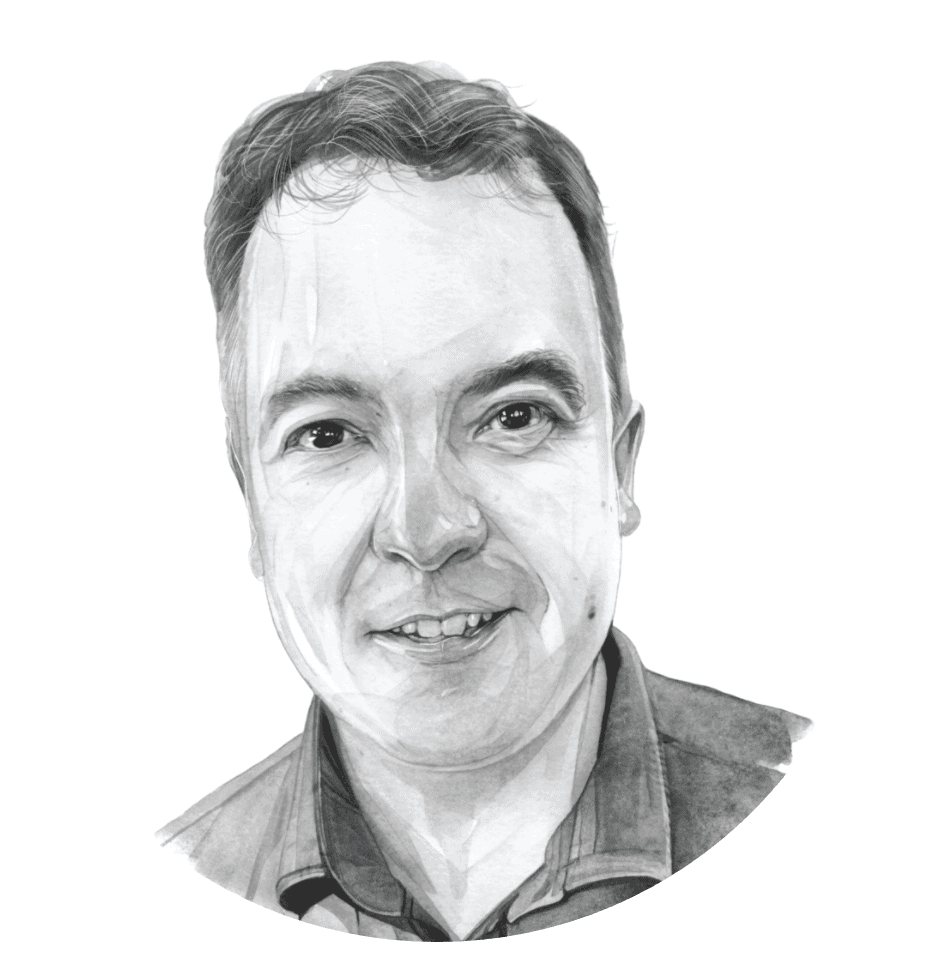
Andrew Peaple is a UK-based editor at The Wire. Previously, Andrew was a reporter and editor at The Wall Street Journal, including stints in Beijing from 2007 to 2010 and in Hong Kong from 2015 to 2019. Among other roles, Andrew was Asia editor for the Heard on the Street column, and the Asia markets editor. @andypeaps


